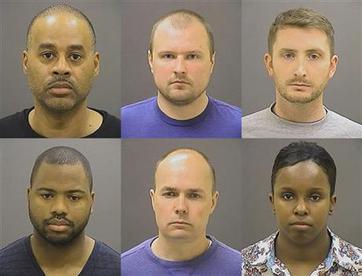
Ben Carson is the longest of long shots in the Republican Party’s 2016 presidential nomination contest. A distinguished neurosurgeon, Carson captured the hearts of many conservatives with his comments at the 2013 National Prayer Breakfast, in which he positioned himself as pretty much the exact opposite of US president Barack Obama.
We won’t see him onstage accepting his party’s nomination next summer. He’s one of those interesting combinations — political novice and snappy-answer gadfly — who just can’t compete in the money and endorsements game and usually end up finding they don’t connect very well with voters, either.
But those same difficulties also liberate him to pose tough questions and step on the third rails that more experienced politicians carefully avoid. Like this one:
Is the Supreme Court really constitutionally empowered to review laws passed by Congress, veto those laws if it deems them unconstitutional, and order the president of the United States to act accordingly?
It’s a good question, albeit one most people considered long settled. Carson brought it up on Fox News Sunday. “The laws of the land, according to our Constitution, are provided by the legislative branch. The laws of the land are not provided by the judiciary branch …. We need to get into a discussion of this because it has changed from the original intent. It is an open question.”
The Court first set aside a law as unconstitutional in 1794. In 1804 Chief Justice John Marshall formalized that power in Marbury v. Madison.
Ever since, with few exceptions (Andrew Jackson ignored the Court’s ruling against forcibly moving the Cherokee; Abraham Lincoln ignored Chief Justice Taney’s Civil War ruling that only Congress could suspend habeas corpus), presidents have generally acknowledged the Court’s authority.
I’ve heard reasonable arguments that the framers intended to empower the Court to review statutes for constitutionality, and that they didn’t. It’s worth considering the plain text of Article III of the Constitution, which empowers the court over “all Cases, in Law and Equity, arising under this Constitution.”
Since the Constitution declares itself “the supreme Law of the Land,” it seems to me that the justices can’t avoid weighing subordinate laws in light of that “supreme law” and setting aside those which violate it. If they’re not, per Article III, empowered to do exactly that, what’s the purpose of an independent judiciary?
While the Constitution does not itself mention “checks and balances,” the framers did. They set the Supreme Court on an equal level with Congress and the presidency for a reason. The three branches restrain each other. Not always and never perfectly, but the Court has on many occasions proven itself a worthy last resort in defense of our liberties.
When it comes to restraining government, I’d much rather see the power of the imperial presidency curtailed. Hearing him pose this question makes me glad that Carson, who seems to style himself a George W. Bush style “decider,” will never have the opportunity to test his theory of the Court’s role.
Thomas L. Knapp is director and senior news analyst at the William Lloyd Garrison Center for Libertarian Advocacy Journalism (thegarrisoncenter.org). He lives and works in north central Florida.
PUBLICATION/CITATION HISTORY
- “Can the President Ignore the Supreme Court?” by Thomas L. Knapp, Ventura County, California Citizens Journal, 05/11/15
- “Does the Supreme Court override the President?” by Thomas L. Knapp, Libby, Montana Western News, 05/12/15
- “Can the president ignore the Supreme Court?” by Thomas L. Knapp, Muscatine, Iowa Journal, 05/12/15
- “Can the president ignore the Supreme Court?” by Thomas L. Knapp, Bayou Buzz [Louisiana], 05/12/15


